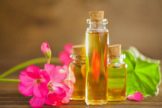
Global Ayurvedic Health and Personal Care Products Market: Recent Trends, Growth Driving Factors, Challenges, Opportunities, Strategies, Recent Developments, Product Segments, and Growth Forecast 2023 – 2033
-
14158
-
June 2023
-
190
-
-
This report was compiled by Correspondence Linkedin | Detailed Market research Methodology Our methodology involves a mix of primary research, including interviews with leading mental health experts, and secondary research from reputable medical journals and databases. View Detailed Methodology Page
-
Global Ayurvedic Health And Personal Care Products Market was valued at USD 5012.2 million in 2023 and is reach USD 9920.5 by 2033 at a CAGR of 7.06%
“Global Ayurvedic Health and Personal Care Products Market Insights, Applications, Trends, and Forecast to 2033” is an upcoming report tracked by the research team of MarketResearch.biz. The global ayurvedic health and personal care products market report has been segmented on the basis of product type, end user, distribution channel, and region.
Ayurvedic Health and Personal Care Products: Overview
Ayurvedic health and personal care products contain natural ingredients and are currently considered as one of the best substitutes for allopathy medicine. Ayurvedic products are made using ingredients such as natural herbs, aloe vera, Neem or Azadirachta indica, tulsi or Ocimum tenuiflorum, Indian gooseberry, plant extracts, and oil, among other ingredients. Ayurvedic products have the ability to well-balance the human mind and body and fight against diseases with minimal or no side-effects.
Major Factors Impacting Growth of the Market
Increasing awareness regarding benefits of ayurvedic medicines and personal care products, coupled with possible adverse effects of consumption of allopathic medicines and chemical-based personal care products are major factors expected to drive growth of the global market.
Increasing prevalence of various diseases and disorders, skin-related issues, and musculoskeletal disorders, combined with spreading awareness regarding health benefits of natural ingredients, not only in developing countries but also in developed countries are other factors driving target market growth currently. In addition, increasing availability of wide range of natural ingredients-based medicines for almost all health issues and personal care products for skin, hair, and dental products is another major factor expected to drive growth of the global ayurvedic health and personal care products market.
However, certain ayurvedic medicines and personal care products are highly expensive as compared to allopathy medicines and need to persevere them properly. This is a major factor that could hamper growth of the global market. In addition, it takes time to get cure any health issues with ayurvedic medicines, which is another factor that could hinder adoption rate of products by individuals living in today’s fast and hectic lifestyles.
Major focus among players in the market is on development of products using organic ingredients, which places the possibilities of gaining significantly higher revenue share owing to rising shift in preference towards organic products among consumers across the globe.
Segment Analysis
By Type:
Among the segments based on product types, the healthcare products segment accounted for significant revenue share in the target market in 2018, owing to rising awareness regarding benefits of ayurvedic medicines over allopathy treatment. In addition, increasing demand for natural ingredients-based dietary supplements is expected to further support growth of the segment in the global market. The personal care products segment is expected to register substantial growth rate in the target market over the forecast period, owing to increasing adoption of herbal personal care products.
By End User:
Among the end-user segments, the women segment is expected to dominate in the target market.
By Distribution Channel:
Among the distribution channel segments, the online retailing segment is expected to register a significant growth rate in the next 10 years. The growing trend of online shopping, along with the increasing focus of ayurvedic health and personal care products manufacturers on selling their products on E-commerce and M-commerce websites in order to reach to a large number of consumers are factors that are expected to continue to support revenue growth of the segment in the target market.
Regional Analysis
The North American market is expected to account for a considerable revenue share in the global ayurvedic health and personal care products market. The US market is expected to contribute a higher revenue share in the North America market, owing to the increasing use of ayurvedic products and rising number of ayurvedic centers. The Asia Pacific market is expected to account for substantial share in terms of revenue in the target market, owing to India being one of the oldest and major market for ayurvedic medicines and personal care products, and ever-inclining demand for natural ingredients-based products. However, rising trend of adoption of home-made products using same ingredients is a major factor hampering revenue growth of the Asia Pacific market to a certain extent.
Global Ayurvedic Health and Personal Care Products Market Segmentation:
Segmentation by Product Type:
Segmentation by End User
- Women
- Men
- Children
Segmentation by Distribution Channel:
- Supermarkets/ Hypermarkets
- Department Stores
- Drug Stores
- Beauty Salons
- Specialty Stores
- Online Retailing
Segmentation by Region:
- North America
- Europe
- Asia Pacific
- Latin America
- Middle East & Africa
Attribute Report Details Market Size USD 5012.2 Growth Rate 7.06% Key Companies Ask For Companies Report Coverage Revenue analysis, Competitive landscape, Key company analysis, Market Trends, Key segments, Distribution Channel, Market Dynamics, COVID-19 Impact Analysis and more… Historical Data Period 2015-2020 Base Year 2022 Forecast Period 2023-2033 Region Scope North America, Europe, Asia-Pacific, South America, Middle East & Africa Country Scope United States, Canada and Mexico, Germany, France, UK, Russia and Italy, China, Japan, Korea, India and Southeast Asia, Brazil, Argentina, Colombia etc.Saudi Arabia, UAE, Egypt, Nigeria and South Africa Revenue in US$ Mn -
-
- Maharishi Ayurveda Products
- Dabur India Ltd.
- The Himalaya Drug Company
- Herbal Hills
- Biobaxy Technologies India
- Planet Ayurveda
- Basic Ayurveda
- Natreon Inc.
- Arvincar




